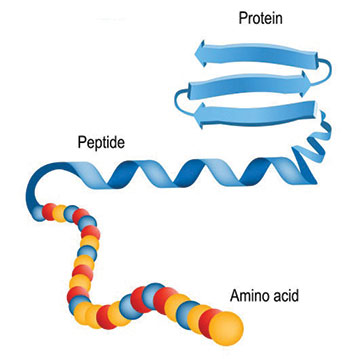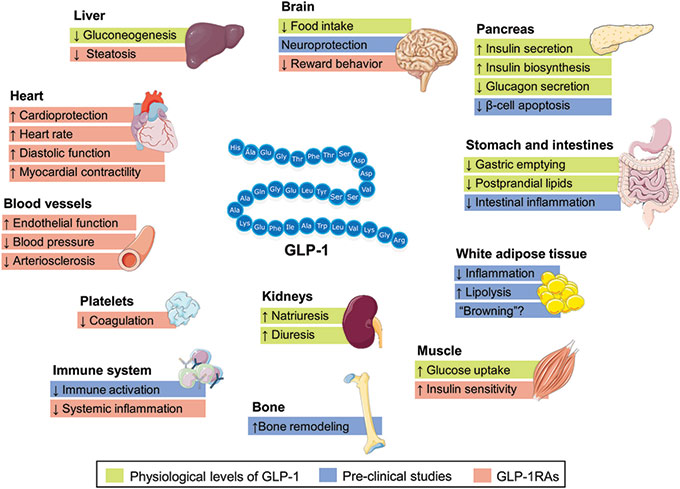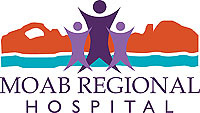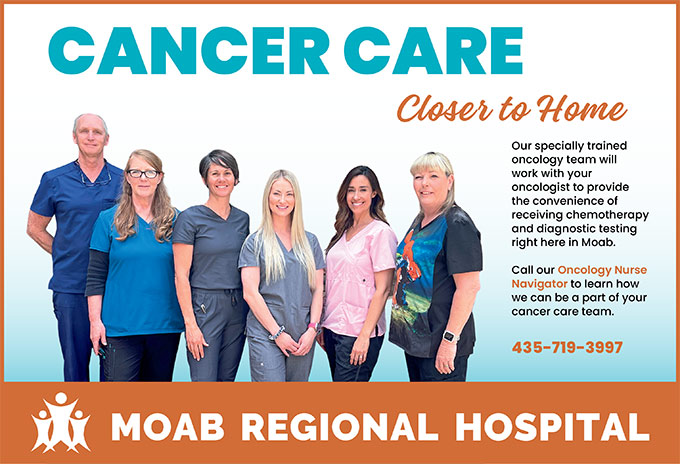|
|
HEALTHY HAPPENINGS - June 2023
|
The Little Health-Boosters You Didn’t Know You Had
by Ray Andrew, MD
|
When I broke my collarbone jumping off a platform too high for my level of mountain bike experience, I didn’t have time to be laid up. I had to drive back to Moab that night and show up to work the next day. Ditto for the day I had surgery. And I wasn’t interested in staying off my bike any longer than I absolutely had to. Three weeks was all I could stand.
Fortunately, in functional and regenerative medicine, we have lots of tools for accelerating healing. Each tool helps the body do what it was designed to do—heal—at a faster rate and more fully than would happen otherwise. One such tool is a string of 43 amino acids that has been found in all human cells except red blood cells. This molecule speeds repair from a wide variety of injuries, including accidental and surgical wounds, broken bones, sprains, heart attacks, strokes, and concussions. This molecule is called a peptide. The repair peptide I used was a critical component of my speedy recovery.
Peptides can be comprised of as few as 2 or as many as 50 amino acids strung together. A protein can be made of several peptides. Similar to hormones—in fact, some are actually hormones—peptides regulate a variety of biological functions and processes in the body by acting as signaling molecules to tell cells what to do.
Although these remarkable molecules have been around since life began, it wasn’t until 1901 that scientists were able to combine two amino acids together in the laboratory. The following year, this molecule was given the name “peptide” from the word “pepsis”—meaning “digestion products of proteins”—since peptides generally result from cells cutting proteins into pieces that each have important biological activities.
There are over 7,000 known peptides within the human body. Whereas many may have overlapping functions, each is responsible for facilitating a different response in target cells. The most widely-known peptide is insulin, which unlocks cells to let glucose inside, as well as to store fat. Discovered in 1921, insulin changed Type 1 Diabetes from a death sentence to a chronic disease. For decades, people with this disease were able to prolong their lives by giving themselves regular injections of this peptide hormone taken from cows. In 1963, the amino acid structure of insulin was finally discovered, leading eventually to our ability to manufacture insulin in the laboratory.
Whereas insulin has saved countless lives since 1921, and another peptide hormone called oxytocin (which induces labor contractions) revolutionized the practice of obstetrics in 1953, many other peptides have been discovered since then and duplicated in the laboratory to improve people’s health.
A few common functions of peptides include providing pain relief, aiding in soft tissue repair, accelerating healing processes, promoting weight loss, improving insulin sensitivity (helps diabetes), stimulating lean muscle building, reversing symptoms of sexual dysfunction, improving hormone production, stimulating labor in pregnancy, maintaining water balance, enhancing memory and other brain functions, prolonging lifespan, and much more. There are also immune peptides that help with infections (including Coronavirus), cancer, and autoimmune diseases.
Because proteins and peptides are broken down into amino acids by stomach acid, most would be rendered inactive if swallowed. For this reason, insulin and most other peptides have to be injected through a tiny, painless needle in the abdomen. A few peptides are treated in such a way that they can be swallowed, whereas others are delivered as a nasal spray. Oftentimes, depending on individual needs, we combine different peptides to enhance their effectiveness.
Although you may not be aware of it, one group of peptides has taken the weight loss industry by storm lately. These peptides are called GLP-1 agonists because they mimic the body’s own glucagon-like peptide-1. This hormone sends the signal to your brain that you are full so that you do not overeat. It reduces cravings, especially in the afternoon. It also increases insulin, lowers blood sugars, improves liver function, protects cells in the pancreas, reduces inflammation, lowers cholesterol, protects the heart, and even improves brain function. As you can see, like hormones, peptides have effects on organs and tissues throughout the body.
Granted, like everything we put in our bodies, peptides have to be used properly in order to achieve the desired results. Even then, they are not without risks or side effects and should only be used under the guidance of a physician trained and experienced in their use. Whereas several common peptides are available at discount prices on the internet, and it is therefore very tempting to purchase them online, this can be risky. Because it is illegal to sell peptides without a doctor’s prescription, anything purchased off the internet will be coming from a seller that is not inspected by the FDA. Not only do you have no idea under what conditions the peptides are manufactured, but you don’t even know that you are actually getting the desired peptide instead of water or fentanyl. Working with a licensed prescriber and obtaining your peptides from a licensed facility ensures that you are getting what you pay for, that it is made properly, that it is appropriate for you, and that you will be monitored for undesired consequences, as you would with any drug you might be prescribed.
Whether you are looking for recovery from an injury or surgery, weight loss, or any other improvement in your health, chances are good that there are a number of peptides that could help you achieve your goals. To find out if peptides are right for you, and to learn what you need to do to make them the most effective for your needs, call (435) 210-0184 and schedule a consultation with one of our licensed experts.
While based on published scientific studies, these statements are for educational purposes only, have not been evaluated by any agency of the U.S. Government, and are not intended to replace the advice of a qualified health professional.

|
National Cancer Survivors Day
Moab Regional Hospital
|
Sunday, June 4, 2023, is National Cancer Survivors Day® and an opportunity for people to come together to recognize those living with a history of cancer, raise awareness of the ongoing challenges cancer survivors face, and celebrate life.
Cancer affects everyone. With more than 18.1 million people living with and beyond cancer in the U.S. today – and nearly 44 million people diagnosed with cancer within the past five years worldwide – everyone knows someone whose life has been touched by cancer. According to the National Cancer Survivors Day Foundation, "A 'survivor' is anyone living with a history of cancer – from the moment of diagnosis through the remainder of their life."
Wyndee Hansen, a member of the Moab community, is one whose life has been affected by cancer. She was diagnosed with lung cancer in the summer of 2021. Remembering how it felt to get her cancer diagnosis, Hansen said, "It takes you to your core, and you realize you're not indispensable. It's scary, you know?" 
Hansen's treatment for lung cancer included a lobectomy (removal of one of the lobes of the lungs). Shortly after removal, the cancer came back. After a second lobectomy surgery, she began radiation and chemotherapy treatments in Grand Junction. She then started receiving chemotherapy at Moab Regional Hospital's infusion center.
Hansen says "I feel very, very grateful that I've been doing the chemo here in Moab; I just love it. It's so nice that we have this facility and the wonderful nurses. They are just my angels".
At the end of February 2023, Hansen received her last chemotherapy treatment.
"Over the last few decades, we've made great progress when it comes to cancer survival, and that is absolutely something we should celebrate," says spokesperson Laura Shipp of the National Cancer Survivors Day Foundation. "However, surviving cancer is not the end of the story. Cancer changes a person's health and life forever. All cancer survivors deserve a good quality of life for the whole of their lives."
As a cancer survivor, Hansen said her kids have been her biggest support. They keep pressing her on and telling her, "You've got this!" She explained one of the things that meant the most to her was that her close friends and family were there for her "whether [she] just needed to vent" or whether they did nothing together, "they were just there."
The strides researchers have made in treating cancer are remarkable," says Shipp. "So many people with cancer are living many years beyond their diagnosis. That's why, now more than ever, it is vital that we work to ensure cancer survivors are not forgotten once active treatment ends. We need to do a better job of addressing the needs of cancer survivors throughout the entirety of their lives."
If you or someone you love is facing cancer, Moab Regional Hospital is here to help. Our specially trained oncology team will work with your oncologist to provide the convenience of receiving chemotherapy and diagnostic testing right here in Moab. With our new CT scanner using the latest imaging technology, you can have peace of mind knowing you're getting the highest-resolution images with the lowest radiation exposure. Call our Oncology Nurse Navigator today at 435-719-3997 to learn how Moab Regional Hospital can be a part of your cancer care team.
Did you know that cancer survivorship begins the moment someone is diagnosed with cancer? June is National Cancer Survivor Month and an excellent time to raise awareness about the challenges of survivorship throughout all stages of the cancer journey. The challenges of a cancer diagnosis don't end when treatment ends.
How can I support a friend with cancer?
Ask permission. Before visiting, giving advice, and asking questions, ask if it is welcome. Be sure to make it clear that saying no is perfectly okay.
Make plans. Do not be afraid to make plans for the future. This gives your friend something to look forward to, which is especially important because cancer treatment can be long and tiring.
Be flexible. Make flexible plans that are easy to change if your friend needs to cancel or reschedule. The effects of cancer can be unpredictable.
Laugh together. Be humorous and fun when appropriate and when needed. A light conversation, a funny story, or a silly video or meme can make a friend's day.
Allow for sadness. Do not ignore uncomfortable topics or feelings if they come up. You may not be able to fix it, but you can provide comfort by just being with them. This may be called "holding space."
Check-in. Make time for a check-in phone call or text message. Your friend can respond to your outreach when they feel up to it.
Offer to help. Many people find asking for or accepting help hard, but your friend will likely appreciate the offer. Offer specific things you can help with, such as childcare, pet care, a ride to an appointment, or preparing a meal. If your friend declines the offer, do not take it personally.
Follow through. If you commit to helping them, it is important to follow through on your promise.
Treat them the same. Try not to let your friend's cancer get in the way of your friendship. As much as possible, treat them the same as you always have.
Talk about topics other than cancer. Ask about their interests, hobbies, and other topics not related to cancer. Come ready to talk to them about something unrelated to cancer. People going through treatment often need a break from talking about the disease.
Read their blog, web page, or group emails. Some people living with cancer choose a main avenue of communication to keep their support network updated. This can be writing a blog or social media page about their detailed experience that they can share with friends and family. Or a family member will post updates to a personal web page or send a group email or text. Stay current with these updates so your friend does not have to repeat experiences or information multiple times. These updates are also a great way to start a conversation and show that you care about what they are experiencing.
cancer.net supporting a friend who has cancer
|

|
|
|
|
|
|
|
|
© 2002-2024 Moab Happenings. All rights
reserved.
Reproduction of information contained in this site is
expressly prohibited.
|
|